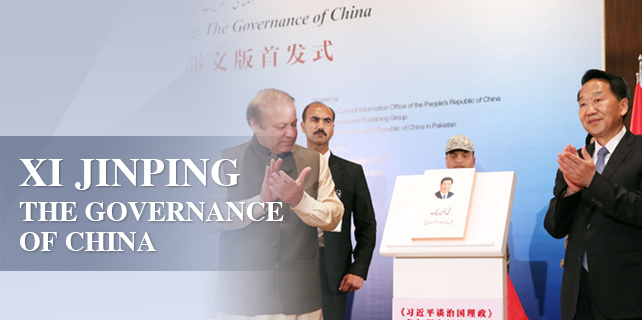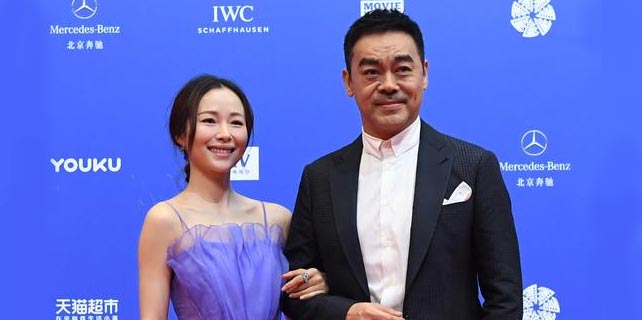Wharton dean: Look beyond news
US President Donald Trump is right to say China is not a currency manipulator, said Geoffrey Garrett, dean of the Wharton School at the University of Pennsylvania.
"Last week, Donald Trump said something that is surely true: China is not a currency manipulator," the political economist said in his speech at the opening ceremony of the second Penn Wharton China Summit on Saturday.
Garrett disputed the notion by some American politicians that China drives down its currency so it can export more competitively.
"In fact, the People's Bank of China has been trying so hard to keep up the value of its RMB in the last couple of years," he said.
Trump said in an interview with The Wall Street Journal last Wednesday that he would not label China a currency manipulator.
The US Treasury Department, in a report released Friday titled, Foreign Exchange Policies of Major Trading Partners of the United States, did not label any nation a currency manipulator.
Still, the report said the Chinese mainland will be monitored, as will Japan, South Korea, Germany and Switzerland.
Compared to the dollar against other leading currencies of the world over the past three years, Garrett said that RMB, or yuan, is the currency that has depreciated the least against the US dollar.
"What's going on now is that the dollar is going strong against all currencies in the world … which is not good for American exports," he said. "If you are looking at who is doing the best job of maintaining value against dollar, it's actually the Chinese RMB."
Garrett said that there are two topics from the American discourse about China's economy that are misleading: China's economic slowdown and the US trade deficit with China.
He said people are accustomed to China's 10 percent growth rate, but there are understandable and good reasons why China's growth has slowed (6.5 percent GDP growth target for this year). Garrett said it benefits China to have sustainable, high-quality economic growth.
"What we tend not to see by emphasizing the growth's slowdown is the Chinese economy is more important than ever to the world economy," he said.
He said the real indicator of importance to the world economy is a country's contribution to global growth, and China's is "way higher" than it was 10 years ago.
As for the $346 billion US trade deficit with China, Garrett said it is not as bad as it appears.
"Chinese goods are produced more efficiently than in the US. This benefits American consumers," he explained.
"The public debate always focuses on exports, as if imports are a bad thing," Garrett said. "But imports (from) the global economy allow us to have the best of the whole world, produced as efficiently as the world can do it, and so much of what's produced in the last 30 years has come from China. Imports are really good because they improve the quality of our life."
He gave the Apple iPhone as an example. The iPhone is designed in California, assembled in China, and the parts in the iPhone come from Germany, South Korea and Japan.
"The problem is in trade statistics. When an iPhone was shipped from the Port of Shenzhen to Los Angeles, that shows up as an import to the US," he said.
The $600 or so that the iPhone retails for counts as an import from China and widens the trade deficit.
"In the trade statistics, iPhone is bad for the US; in reality it's good for the US," Garrett said.
So the headlines about a China slowdown and the US trade deficit are "profoundly misleading about the win-win nature of the relationship between the US and China", he said.
"Despite all the noise surrounding US-China relations with the election of Donald Trump, none of that has happened," he said. "We just have to go beyond headlines to have more subtle, substantive understanding of the realities on the ground."
The Penn Wharton China Summit, which ended on Sunday, saw more than 20 mostly Chinese entrepreneurs joining a variety of panels on real estate, arts, finance and internet technology.
wanglinyan@chinadailyusa.com









